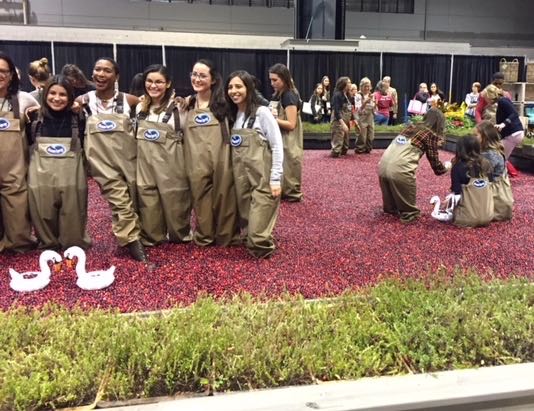Last week AICR joined the centennial celebration of the Academy of Nutrition and Dietetics – the US organization for food and nutrition professionals – at their annual Food and Nutrition Conference and Expo. We shared AICR’s cancer prevention research and education and chatted with hundreds of dietitians.
We also attended scientific sessions and heard some of the latest research on food and nutrition and health. Here’s a brief round-up from a few sessions focused on cancer:
Intermittent Fasting, Health and Cancer
Intermittent fasting means alternating one or more normal eating days with at least one day of fasting and is a hot topic in health research. Here researchers presented evidence on overnight fasts of at least 13 hours and how that might affect weight, metabolic health and perhaps cancer risk, including these 2 studies:
- In a large population study, researchers found links between these long overnight fasts and reduction in a marker of chronic inflammation. One study also found an association between these long overnight fasts and lower risk for breast cancer recurrence. These results are very preliminary and need much more study.
- In a small study to see if this type of fasting is realistic, women who participated said it was easy to do and they would recommend it to others. If a long overnight fast does show health benefits, it may be one realistic option for individuals to improve health.

Indoor Cranberry Bog
Weight and Exercise in Cancer Survivorship
Here researchers discussed how lifestyle factors play a key role in cancer survivorship. They highlighted the clear association between certain factors like obesity and cancer recurrence and mortality. Studies also show that healthy lifestyles after cancer diagnosis lead to improvements in survivors’ fitness and physical functioning, improved quality of life and fewer cancer and treatment related symptoms. More research is needed to understand how improving diet, weight and physical activity can impact cancer survivorship.
Report on Cancer Research from the Women’s Health Initiative (WHI) Study
This study has been following over 160,000 women, ages 50-79 from across the country for two decades, looking at women’s health, including diet and nutrition and cancer. Here are two of the study’s findings:
- Women who started out eating a high fat diet and changed to a lower fat diet over the course of the study had a lower risk of breast cancer compared to those who did not make as big of a dietary change.
- Postmenopausal women who followed cancer prevention guidelines had lower cancer risk and lower rates of cancer death than those who did not.
In the exhibit hall, dietitians tasted creative recipes, learned about nutritional products for cancer and other patients, explored new food products and learned about cranberry bogs with an indoor simulated bog. Here is where RDs see and taste new foods that might be appearing on supermarket shelves, look for new patient materials and discuss educational and clinical needs with the exhibitors.
See AICR’s information and resources for cancer survivorship and healthy living, including Recharge, our monthly newsletter for survivors.





